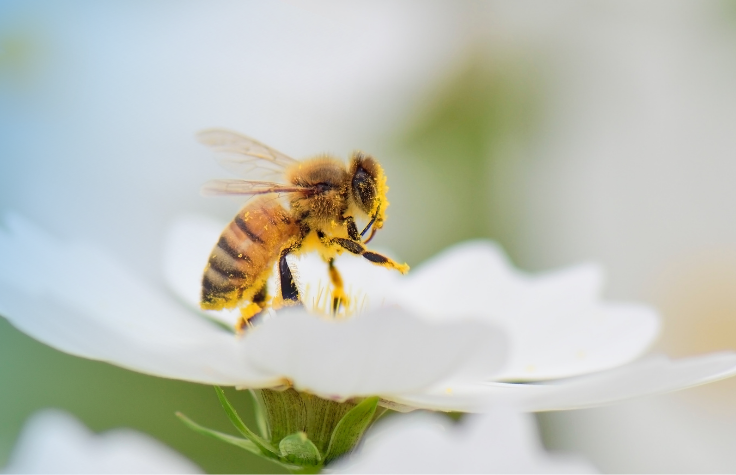
14 June 2021
Dr. Bertram Brenig, from the University of Goettingen, Institute of Veterinary Medicine is the 2021 winner of the Greater Good Grant for his research on the Western Honey Bee. Brenig, and his collaborators, will use genomics to help understand vulnerabilities impacting the Western Honey Bee, one of the most populous pollinators facing multiple challenges and population decline.
The Greater Good annual grant program, now in its thirteenth year, recognizes research proposals that will increase the sustainability, productivity, and nutritional density of agriculturally important crop and livestock species. Grantees receive Illumina products and services equal to 20,000,000,000,000 base pairs of data to support their projects.
“When selecting a winner for this grant, we prioritize projects that can improve sustainability in agriculture especially in important areas of agriculture that today are underserved by public funding and resources,” said Lisa Eldridge, Associate Director of Agrigenomics at Illumina. “Our 2021 winning project focusing on bee health aligns with all our grant objectives and we are humbled and enthusiastic to be supporting this research that is vital to the survival of our most important pollinators.”
Our 2021 winning project focusing on bee health aligns with all our grant objectives and we are humbled and enthusiastic to be supporting this research that is vital to the survival of our most important pollinators.
“According to USDA, 43.7 percent of Western Honey Bee colonies were lost from 2019 to 2020,” notes Brenig. “Considering about 90 percent of flowering plants and 75 percent of crop species depend on pollination by insects, you can see how this is of the utmost relevance for global biodiversity to stop mass extinction of pollinators.”
Crops pollinated by bees are worth over $215 billion worldwide annually. But between 1947 and 2005, US Bee Keepers reported losing over half of their domestic honey bees, while worldwide 50 percent of wild bees have become extinct. Bee health is impacted by a few key factors. Loss of natural environment and use of pesticides on weeds can reduce the bees natural forage habitat. Additionally, susceptibility to key pests, like varroa mites has also taken its toll on the species. Using genomics, researchers can get a deeper understanding of these vulnerabilities and apply this information to help ensure their long-term survival.
Brenig and his collaborator, Kaspar Bienefeld from the Institute of Bee Research at Hohen Neuendorf & Humboldt University of Berlin, plan to use comparative whole-genome sequencing, genome-wide association analysis, and epigenomic profiling to unravel the genetically-controlled behavioral difference of resistance of honey bees against parasite infestation.
We hope that the project will contribute to the worldwide initiatives and efforts to prevent the increasing mass extinction of honey bees and secure survival of pollination-dependent species including humankind.


